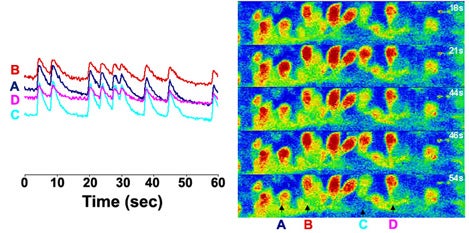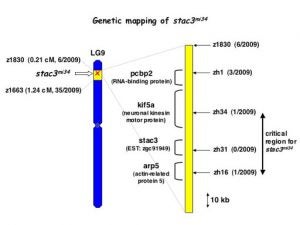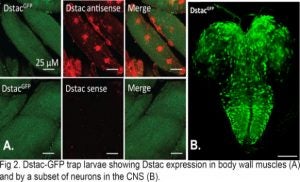The Kuwada lab is interested in genes that regulate the development and function of neural circuits and genetic diseases caused by these genes. The lab studies zebrafish and Drosophila since their genomes are readily manipulated with a wide variety of molecular tools. We study the nervous system with electrophysiology, Ca2+ imaging, optogenetics and live imaging of fluorescently labeled proteins. Present projects include the analysis of a small family of novel genes that regulate voltage-dependent Ca2+ channels in muscles and neurons and thus their excitability. We found that one of these genes is responsible for a human congenital muscle disease called Native American myopathy and are using the zebrafish to study how dysfunction of this gene causes the congenital disease. We are also studying the Drosophila version of this gene and found that it is important for signaling by neurons that regulate complex behaviors such as circadian rhythm and locomotion.
Transgenic Zebrafish

Imaging Activity in Embryonic Zebrafish Spinal Neurons by Ca2+ Imaging

Electrophysiological Recordings from Zebrafish Embryonic Neurons

Morphology of Individual Zebrafish Neurons

Identification of Zebrafish stac3 Gene that Regulates Muscle Function

Human STAC3 Gene is Responsible for the Congenital Muscle Disease, Native American Myopathy

Drosophila stac gene (Dstac) is active in muscles and a subset of neurons and regulates the release of neuropeptides




